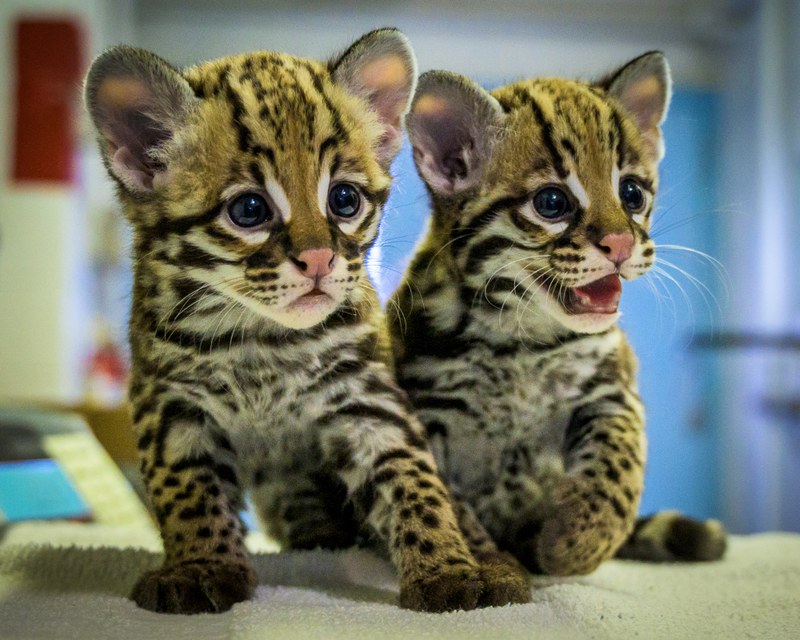
Zoo Celebrates Its First-Ever Ocelot Birth
Lucy and Dale are first-time parents to two healthy kittens
Nov. 26, 2019 - The ABQ BioPark is pleased to welcome ocelot kittens for the first time ever.
On October 2, 5-year-old Lucy the ocelot gave birth to two healthy kittens overnight; one male and one female. The father is 2-and-a-half-year-old Dale. Both are first-time parents.
"This is an important milestone for the BioPark and we're happy to report that mom and kittens are doing great," said Mammal Curator Erin Flynn. "It's a big deal for a first-time mom to have two kittens and be taking such good care of them."
Lucy arrived at the BioPark in June 2015 from the Abilene Zoo and Dale came from the Greensville Zoo in April 2018. This was a recommended breeding from the Association of Zoos and Aquarium's (AZA) Ocelot Species Survival Plan (SSP).
Ocelots are notoriously difficult to get pregnant, so the historic birth was two years in the making. In 2017, staff artificially inseminated Lucy under the direction of the AZA Ocelot SSP group. Although Lucy did not become pregnant at that time, the process made her more receptive to breeding with Dale, Flynn said.
In addition to this being a first for the BioPark, Lucy's pregnancy is being used to expand the ocelot management database for other AZA institutions. Although staff members had seen recent breeding activity, Lucy had not shown any of the typical signs of being pregnant such as weight gain, teat development and behavioral changes, and so the babies were a happy surprise. Lucy also cycled and mated through her entire pregnancy, something that SSP professionals had never seen before.
The kittens received their first exam and vaccinations on November 13. They weigh in at about 2 pounds each. No names have been chosen.
According to Flynn, the birth is "dear and close to home." Ocelots are native to the Americas, with populations from the Southwest United States into much of northern South America. The ocelot is listed as an endangered species by the US Fish and Wildlife Service, and is thus protected by the Endangered Species Act. According to the service, populations can be found in south Texas and southeast Arizona.
MEDIA
The kittens are currently being cared for by their mom in the den while Dale is on exhibit. The BioPark does not yet know when the kittens will be viewable by the public, but will send an update when the time comes. Photos and videos of the kittens can be accessed here: https://lightroom.adobe.com/shares/a312e1e0f2304651857340a998469304
In addition, video b-roll of their medical exam and an interview with the BioPark's mammal curator are available for you to edit into a package here: https://www.dropbox.com/s/701m8b8786evuvm/Ocelot%20kittens_b-roll.m4v?dl=0
To download from the link, click "open," then "download."
